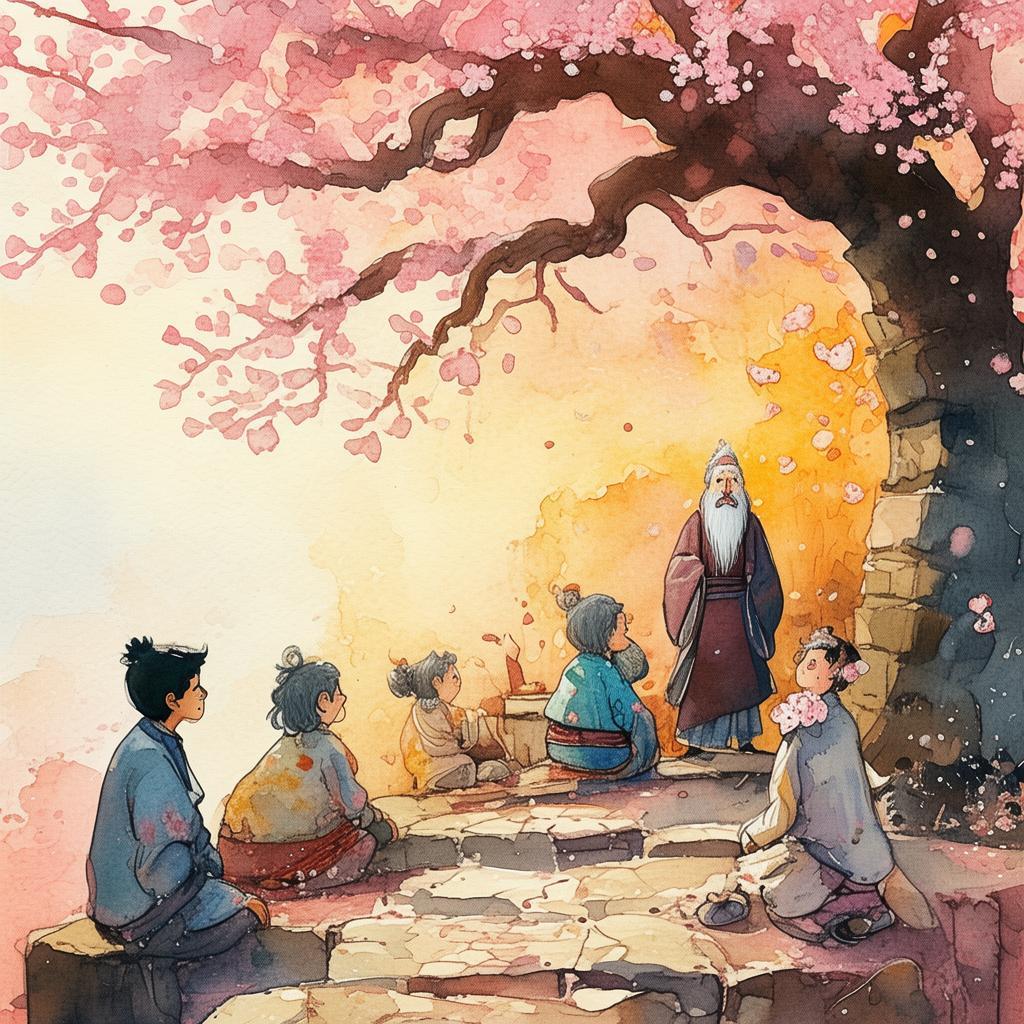The Mirror of Narcissus: The Riddle of Self-Deceit
Once upon a time in the kingdom of Luminara, there reigned a prince named Narcissus, whose beauty and charm were the envy of all. His narcissism was not merely in his appearance but in his soul, as he was utterly self-absorbed and believed that he was the center of the universe. The kingdom was a vibrant tapestry of colors, but Narcissus saw only the reflection of his own grandeur in the windows of his palace.
One day, a traveler arrived at the court, bearing with him a riddle wrapped in a scroll. It was said that the riddle was of such depth and wisdom that it could reveal the truth about anyone who dared to confront it. Narcissus, always hungry for the admiration and adoration of others, decided to take up the challenge and have the riddle read before the court.
The scroll was unrolled, and the riddle was read aloud:
"Behold the mirror of Narcissus,
In its depths, a soul is found.
What does it reveal, this mirror's gaze?
Is it truth, or is it fraud?"
The court was abuzz with speculation, but Narcissus was not to be deterred. He stepped forward, eager to have the answer to this riddle that seemed to be a direct challenge to his narcissistic pride.
The court scribe, a wise old man with a twinkle in his eye, began to explain:
"The mirror of Narcissus is not a simple reflection, but a portal into the depths of one's own soul. It reveals not just the outer self, but the inner truth. To see clearly, one must be willing to confront their own faults and embrace the reality of their own humanity."
Narcissus, flushed with pride, thought he knew the answer immediately. "It reveals my own beauty, my own grace! It is a reflection of my own perfection!"
The scribe chuckled softly. "The mirror shows what you choose to see, but it also reveals what you cannot. It is a mirror of self-deceit."

Intrigued and somewhat humbled, Narcissus asked, "What then does it reveal to you, wise scribe?"
The scribe looked deeply into Narcissus's eyes, and the prince felt a chill run down his spine. "I see the man who is so in love with his own image that he has forgotten the world outside. I see the one who fears the truth more than he fears the unknown. I see a man who is so lost in his own reflection that he has become a prisoner of his own self-deceit."
Narcissus, now filled with doubt, demanded, "Then tell me, what must I do to free myself from this mirror?"
The scribe's voice was grave as he replied, "You must look beyond the surface. You must seek out the people who are not mirrors, who will not flatter you. You must listen to their words, for they may hold the truth you have been ignoring. And you must look into your own heart, for it is there you will find the answer."
Narcissus, driven by the scribe's words, set out to change. He left the court and wandered the kingdom, meeting people of all walks of life. He listened to their stories, their struggles, and their joys. He began to understand that the world was not just a reflection of himself, but a place full of diverse experiences and perspectives.
As he delved deeper into himself, he found his own faults and flaws. He realized that his narcissism was a barrier that kept him from truly connecting with others. He began to humble himself, to see the world and his place in it as something greater than himself.
One day, Narcissus found himself in a humble village, where he was welcomed by simple folk who saw him not as a prince but as a man. They shared their laughter, their tears, and their lives with him. It was in this village that he finally saw his reflection in the eyes of others, and he saw himself as they saw him—imperfect, but real.
As he stood before the mirror of Narcissus, he now saw not just his own beauty, but the beauty of the world around him. He realized that the riddle was not just about him, but about all of humanity. It was a riddle that asked us to look beyond the surface, to confront our own self-deceit, and to embrace the truth of who we are.
Narcissus returned to his kingdom, no longer the narcissistic prince but a changed man. He governed with compassion and humility, recognizing the worth of every person and the importance of self-reflection. The kingdom of Luminara flourished, and Narcissus became a legend, not for his beauty, but for his wisdom and the transformation he had undergone.
And so, the mirror of Narcissus remained, a testament to the power of self-reflection and the journey from narcissism to self-awareness. Its message echoed through the kingdom, and beyond, that true beauty lies not in the reflection but in the heart.
✨ Original Statement ✨
All articles published on this website (including but not limited to text, images, videos, and other content) are original or authorized for reposting and are protected by relevant laws. Without the explicit written permission of this website, no individual or organization may copy, modify, repost, or use the content for commercial purposes.
If you need to quote or cooperate, please contact this site for authorization. We reserve the right to pursue legal responsibility for any unauthorized use.
Hereby declared.









